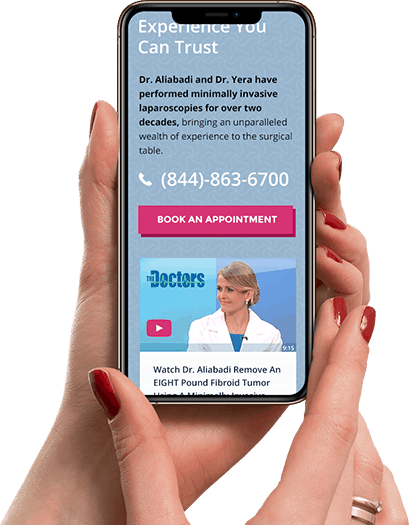Understanding Dementia: Symptoms and Risk Factors
Dementia is a catch-all term for a severe decline in mental performance that interferes with daily life. The most common cause of dementia is Alzheimer’s.
Dementia is a syndrome in which there is a deterioration in cognitive function beyond what might be expected from the usual consequences of biological aging.
The symptoms of dementia include a decline in memory, reasoning, or thinking skills. While brain changes with age are normal, dementia is not a normal part of aging. The condition is actually caused by brain cell damage that impairs communication between neurons.
There are many different types of dementia, and each type can have different early warning signs.
Other significant forms of dementia include vascular dementia, dementia with Lewy bodies (abnormal aggregates of protein that develop inside nerve cells), and diseases that contribute to frontotemporal dementia (degeneration of the brain’s frontal lobe).

What is Alzheimer’s?
Alzheimer’s is a disease that strikes women more than men — two-thirds of those diagnosed with Alzheimer’s are women.
Though most of the 6 million people living with the disease are over 65, about 200,000 younger people are affected by Alzheimer’s.
This degenerative disease is caused by microscopic changes in the brain that begin 20-30 years before the first signs of memory loss. This gradually leads to dementia symptoms that worsen over time. The most common early symptom of Alzheimer’s is difficulty recalling new information because the disease typically impacts the part of the brain associated with learning first.
As the disease worsens, dementia symptoms include disorientation, confusion, and changes in behavior. In its advanced stages, the patient has difficulty speaking and swallowing.
Risk factors for Alzheimer’s
Being female isn’t the only thing that increases your risk of Alzheimer’s disease. The two other primary risk factors are:
- Family history. If someone in your family had Alzheimer’s or dementia, you are at greater risk of developing the condition. However, many people with a family history never develop symptoms.
- Head trauma. People with severe brain injury have a greater risk of Alzheimer’s disease.
Women are at the epicenter of the Alzheimer’s crisis. That’s why we must be at the heart of the solution.
Maria Shriver, Women’s Alzheimer Movement Founder
What is the connection between Alzheimer’s and women’s health?
For decades, experts assumed the increased prevalence of Alzheimer’s disease among women was because they lived longer than men. And while that may be partially true — given that advancing age is the primary risk factor — it’s not the only reason.
For reasons not entirely clear to scientists, a woman in her 60s is twice as likely to develop dementia over her lifetime than breast cancer. Furthermore, after 60, a woman has a 1-in-5 chance of developing Alzheimer’s.
Why are women more likely to get dementia?
Age is the most significant risk factorfordementia, and women live longer than men. The average lifespan for men is 76 years, while women live an additional five years. The likelihood of developing Alzheimer’s doubles every five years after age 65. After age 85, dementia in older adult women risk reaches nearly 50%. For Alzheimer’s disease, the incidence among people aged 85 years and more senior is about 14 times that among people aged 65 to 69. Another study found that beginning at age 65, the risk of Alzheimer’s disease increased by 23% per additional year of age.
Women’s brain chemistry also appears to play a role in gender and dementia. Apolipoprotein E4 (APOE4), a gene that plays a central role in moving cholesterol through the body, has a more substantial effect on women than men. Also, scientists think the loss of estrogen during menopause may expose women to a critical period of vulnerability for the development of Alzheimer’s. However, estrogen replacement therapy has produced conflicting results involving the thought process. In contrast, androgens (i.e., male sex hormones, including testosterone) may help preserve brain health and function, leading to lower levels of Alzheimer’s disease.
Another factor regarding women and dementia is that they are about twice as likely to contract an autoimmune disease as men. Though the reason is not apparent, scientists say that women usually have a more robust immune system than men. Many autoimmune disorders occur during pregnancy, so the thought is that, through evolution, the strong immune system protects the fetus. But because of their sturdy immune system, women develop more amyloid plaques than men, which may lead to dementia.

Call 877-760-3564 or click here to schedule online
A healthy lifestyle can reduce the risk of Alzheimer’s
- Physical activity. Thirty minutes of vigorous exercise three or four days a week. This can prevent the disease, as well as slow its progression.
- Mediterranean diet. This diet includes fresh vegetables and fruits; whole grains; olive oil; nuts; legumes; fish; moderate amounts of poultry, eggs, and dairy; moderate amounts of red wine; and red meat only sparingly. Doctors say even partial adherence to this diet can thwart Alzheimer’s.
- Get plenty of sleep. During sleep, the brain clears plaque.
- Drink liquids. Not drinking enough liquids (dehydration); not getting enough thiamine (vitamin B-1), common in people with chronic alcoholism; and not getting enough vitamins B-6 and B-12 in your diet can cause dementia-like symptoms.
- Treat hearing problems. People with hearing loss have a greater chance of developing cognitive decline. Early treatment of hearing loss, such as hearing aids, may help decrease the risk.
- Control chronic health conditions such as high blood pressure (hypertension), obesity, and diabetes.
- See the doctor for medical conditions such as stress, anxiety, depression, and delirium that can cause serious memory problems that resemble dementia. These conditions may put a woman at higher risk for dementia. Ask for a memory test to rule out a dementia diagnosis.
- Psychiatric evaluation. This evaluation will help determine if depression or another mental health condition is causing or contributing to a person’s symptoms.
- Keep your mind active by engaging in crossword puzzles or wordle activities.
- Connect socially. Don’t isolate.
- Limit alcohol intake to one drink a day. Several extensive studies and reviews found that alcohol use disorders were linked to an increased risk of dementia, particularly early-onset dementia.
How to track the progress of new Alzheimer’s treatment options
Scientists are working diligently to develop new ways to prevent and treat Alzheimer’s. However, the pace can be frustratingly slow for patients, caregivers, and family members. Family caregivers are particularly susceptible to anxiety and depression and have higher risks of heart disease.

The Coalition Against Major Diseases (CAMD), an alliance of pharmaceutical companies, nonprofit foundations, and government advisers, has created a first-of-its-kind partnership to share data from Alzheimer’s clinical trials.
The CAMD has also collaborated with the Clinical Data Interchange Standards Consortium (CDISC). Researchers believe that sharing data from more than 6,500 study participants will speed the development of more effective therapies.
Women can volunteer to participate in clinical trials. By volunteering for a clinical trial, women can become partners in helping researchers discover new ways to potentially diagnose, treat, and prevent Alzheimer’s disease and related dementias.
For more information on dementia care and clinical trials, contact the Alzheimer’s Association.
You can alsocontact the Women in Alzheimer’s Organization for support and research information.
The Outpatient Hysterectomy Center covers your women’s health concerns
OHC’s Thais Aliabadi, M.D. and Ramon Yera, M.D. are Los Angeles’ only surgical team exclusively dedicated to sparing women from invasive open surgeries that involve extended hospital stays, long painful recoveries, and surgical scars. Women visiting OHC for health problems such as family planning or those requiring surgery receive individual attention, clear communication, compassion, and exceptional skill.
We invite you to establish care with OHC. Please make an appointment online or call us at (844) 863-6700.
The Outpatient Hysterectomy Center is conveniently located for patients throughout Southern California and the Los Angeles area. We are near Beverly Hills, West Hollywood, Santa Monica, West Los Angeles, Culver City, Hollywood, Venice, Marina del Rey, Malibu, Manhattan Beach, and Downtown Los Angeles.
Call 877-760-3564 or click here to schedule online










